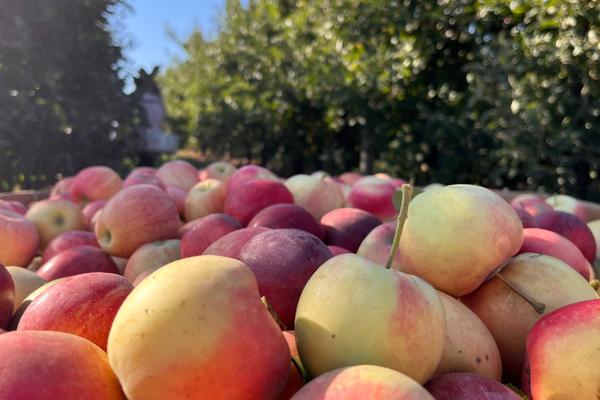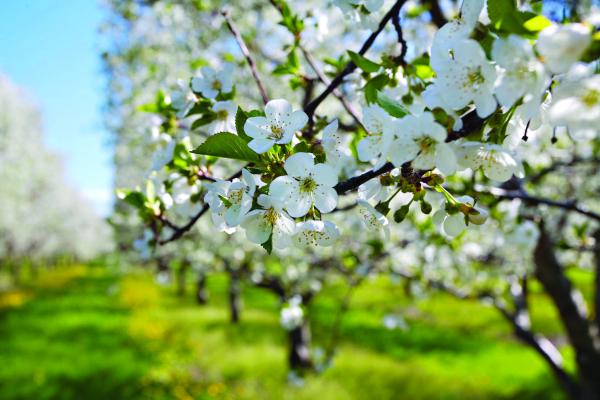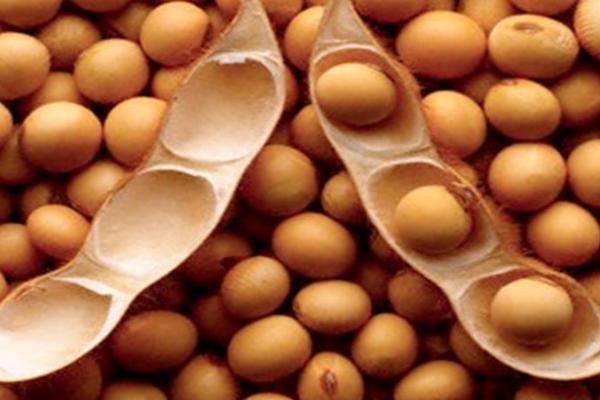Michigan farmers feed Michigan... and the world
Did you know Michigan is one of the most diverse agricultural states in the nation? Michigan's farmers are not only responsible for the food on your table, they're also the second-largest influencers of Michigan’s economy.
THE FACTS
Fruits, Vegetables, Grain, Dairy... and more
A Family Affair
Economic Impacts
Is food grown in Michigan safe for my family?
The answer is an emphatic “yes!”
Despite common myths and falsehoods, the fact is this: Michigan-grown fruits, vegetables and grains are foods you can confidently serve your family.
Michigan’s farmers adhere to strict guidelines regulating things like pesticide and herbicide use, animal welfare and environmental protections, established by an array of agencies including the Michigan Department of Agriculture, the U.S. Department of Agriculture, the Michigan Department of Environment, Great Lakes and Energy as well as the U.S. Environmental Protection Agency just to name a few.
Farmers in Michigan are required to be fully familiar with and abide by these regulations.
What types of fruits, vegetables and grains are grown in Michigan?
Michigan is a state of tremendous agricultural diversity. From apples to cherries to corn to soybeans to pumpkins to potatoes to sugar beets, Michigan’s farmers grow many of your favorites.
In terms of economic impact, dairy, corn, soybeans and sugar beets along with apples and cherries lead the way.
In terms of volume, Michigan farmers are among the nation's leading growers of:
- Dry black and cranberry beans
- Fresh flowers (begonias, impatiens, geraniums, petunias, Easter lilies and more)
- Blueberries
- Tart cherries
- Pickling cucumbers
- Squash
To learn more about the diversity of Michigan agriculture, visit the Michigan Ag Council at michigangrown.org.

One of Michigan's most beloved crops, Michigan's apple growers provide an economic impact estimated at more than $700 million.
Michigan is one of the nation's leading producers of apples, with an annual harvest tallying more than 1.2 billion pounds of tasty fruit. Michigan is a national leader when it comes to apples sliced for pies as well as processing for applesauce, cider and juice.

Michigan farmers grow both tart, used most often for baking and cooking, and sweet cherries which are prime eating from the tree.
In fact, Michigan leads the nation in cherry production, growing nearly 75% of the nation's supply. The Montmorency cherry was developed in Michigan and is known for its ultra-high levels of disease-fighting antioxidants.

When it comes to dairy, Michigan is one of the best in the nation. Amongst the nation's leaders in total milk production as well as milk-per-cow averages, Michigan's dairy farmers are great at what they do.
Michigan milk is 100 percent free of all added and artificial hormones and every load of milk is tested prior to processing to ensure you can trust the Michigan dairy products you love.

Grains play a vital role in Michigan’s farm economy…and on tables around the world. Corn, wheat and soybeans are staple ingredients in many of the foods that feed the world.
Michigan farmers plant roughly two million acres of soybeans each year and the harvest contributes approximately $1 billion to the state’s economy.
FIeld corn is planted on more than two million acres in Michigan, resulting in nearly 300 million bushels of corn at harvest with an economic impact of roughly $1billion in the state while wheat accounts for roughly $180 million in revenues.
Michigan Ag Council
Get accurate agriculture facts and meet Michigan farmers from around the state at Michigan GROWN, Michigan GREAT!

Sources & Additional Resources
- USDA, National Agricultural Statistics Service
- Michigan State University, Center for Economic Analysis, Product Center, Papers & Reports
- Michigan Department of Agriculture and Rural Development, Michigan Agriculture Facts & Figures Book
